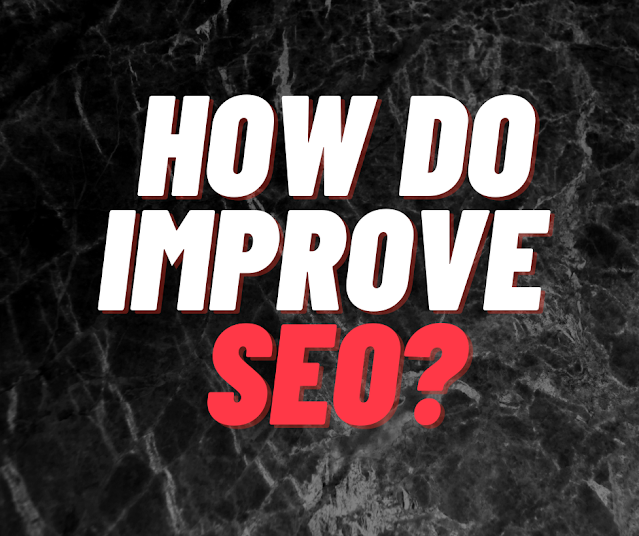How do you think you could improve SEO?
Improving SEO (Search Engine Optimization) involves a combination of on-page and off-page strategies to enhance your website's visibility in search engine results. Here are some effective techniques to help you improve your SEO:
1. Keyword Research and Optimization:
Identify relevant keywords and phrases that users might use to find your content.
Incorporate these keywords naturally into your content, including titles, headings, and throughout the body.
Avoid keyword stuffing, which can negatively impact your rankings.
2. Quality Content:
Create high-quality, valuable, and informative content that addresses users' needs and interests.
Regularly update your content to keep it fresh and relevant.
3. On-Page Optimization:
Optimize meta titles and descriptions with relevant keywords to improve click-through rates from search results.
Use descriptive and meaningful URLs that include keywords.
Include header tags (H1, H2, etc.) to structure your content and make it easier to read.
4. Mobile-Friendly Design:
Ensure your website is responsive and mobile-friendly, as Google considers mobile-friendliness in its rankings.
5. Page Speed:
Optimize your website's loading speed. Slow-loading pages can negatively impact user experience and SEO.
6. Internal Linking:
Include internal links to other relevant pages on your website. This helps users navigate and improves the overall website structure.
7. Backlinks:
Acquire high-quality, relevant backlinks from authoritative websites in your industry. Focus on natural link-building methods.
8. User Experience (UX):
Design your website with a user-friendly interface, easy navigation, and clear calls to action.
Provide a positive user experience to reduce bounce rates and improve engagement.
9. Social Signals:
Engage on social media platforms to promote your content and encourage social sharing.
10. Schema Markup:
Implement schema markup to provide search engines with additional information about your content, helping them understand your website better.
11. Local SEO (if applicable):
Optimize your Google My Business listing and other local directories if you have a local business.
12. Monitor Analytics:
Use tools like Google Analytics and Google Search Console to monitor your website's performance and identify areas for improvement.
13. Avoid Black Hat Techniques:
Stay away from unethical practices such as buying links or keyword stuffing, as these can lead to penalties from search engines.
14. Regularly Audit and Update:
Conduct regular SEO audits to identify issues and opportunities for improvement.
Remember that SEO is a long-term strategy, and results may take time to become noticeable. Consistency, quality, and a user-centric approach are essential to successful SEO. Additionally, staying updated with the latest algorithm changes and trends in the SEO industry is essential.




Comments
Post a Comment